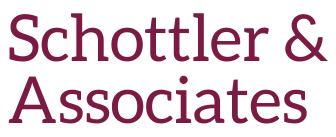Bankruptcy is a big decision, and you’ve most likely done your research if it’s something you’re considering. By this time, you’ve probably realized there are several types of bankruptcy. They each serve a unique purpose and are meant to help people in different situations. What is chapter 7 bankruptcy? If you’re curious if this type of bankruptcy is right for you, read on to learn more.
What is Chapter 7 Bankruptcy?
Chapter 7 bankruptcy is a form of bankruptcy that forgives unsecured debt. Unsecured debt results from a loan that was given without the individual offering collateral. This can include credit card debt and medical bills. In Chapter 7, individual’s eligible assets are sold off as a means to pay for their debts. This process is known as liquidation.
If you’re familiar with Chapter 13 bankruptcy, you’re aware of the repayment plan filers must set up. Chapter 7 bankruptcy does not require this repayment plan. Whereas a repayment plan in Chapter 13 must not exceed 3-5 years, many people who file for Chapter 7 could not even repay their debts in 5 years even having taken drastic measures. Chapter 7 is for individuals who don’t have disposable income or have an insufficient amount to pay off their debts, even with a repayment plan.
Through Chapter 13, individuals can sometimes avoid selling their car or home to repay their debts. In Chapter 7, debts in regards to mortgages and car loans can be discharged but the individual will lose possession of the property or car.
While most debts can be forgiven under Chapter 7, there are several debts that cannot be discharged. These debts include student loan debt, alimony or child support, court fees, and taxes, among other things.
Should You File Bankruptcy?
Bankruptcy should be looked at as a final option, and the means to qualify are drastic and challenging to meet. Before you meet with a chapter 7 bankruptcy lawyer to file, you should consider the alternatives and see if one of them is right for your situation.
Chapter 7 bankruptcy isn’t for everyone, and it is one of the more extreme versions. One should consider Chapter 13 if they have a steady income and do not want to lose their home or car. One should consider Chapter 11 if they are a business who wants to avoid liquidation. Of course each of these have their own requirements that must be met. Do your research and have a consultation with a bankruptcy attorney to determine what’s your best option.
Bankruptcy could be avoided all together in some cases if an individual is able to set up out of court agreements with creditors and debt collectors, and if you’re able to create extended repayment plans with the creditors.
If you’ve determined that Chapter 7 is the path you need to take, contact our firm’s Chapter 7 bankruptcy lawyer, Mark Schottler. He’s a Chicago based attorney serving Riverside and surrounding communities. He offers free 30 minute consultations and can help you fill out paperwork and properly file bankruptcy. Set up your consultation here.

